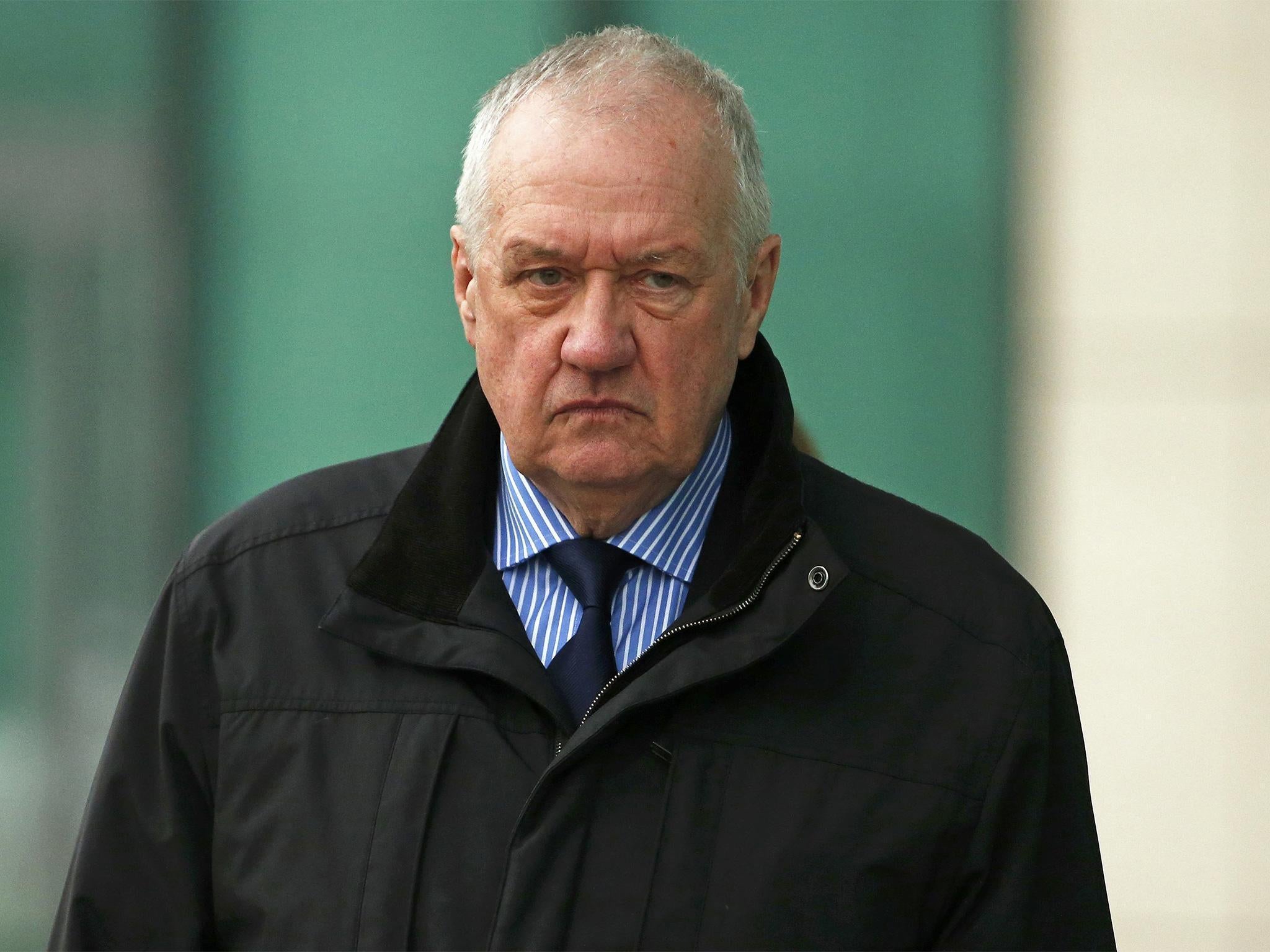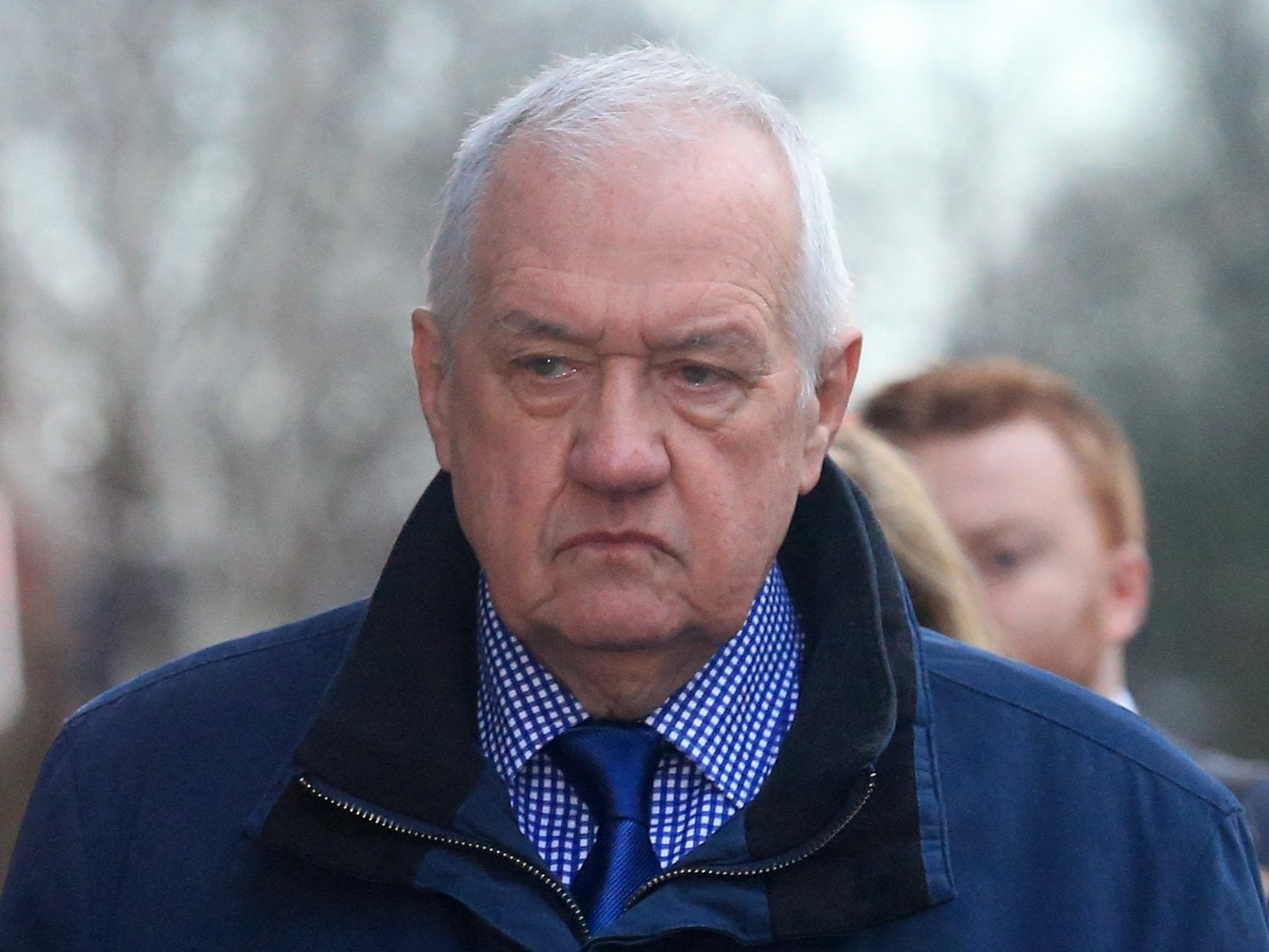Hillsborough trial: David Duckenfield 'unfairly singled out' for manslaughter prosecution, defence claims
Prosecution says match commander's 'extraordinarily bad' series of failings led to fatal crush

David Duckenfield has been “unfairly singled out” for prosecution over the Hillsborough disaster, his defence lawyer has claimed.
The match commander “was not equipped with special powers to anticipate things that everybody else didn’t,” Benjamin Myers QC told a jury at Preston Crown Court.
He added: “It can hardly be fair to judge Mr Duckenfield by different standards from everyone else.
“The prosecution are blaming him for ... events that can’t be attributed to the fault of any persons in particular.
“What happened on 15 April 1989 was brought about by a combination of factors great and small, some with their roots in events years before and some that emerged in the hours and minutes before disaster struck.”
The prosecution had previously told the court that Mr Duckenfield’s “extraordinarily bad” failings as match commander was a substantial cause of the deaths.
Richard Matthews QC said it “required no hindsight” to realise the risk of a fatal crush in fenced pens at the Leppings Lane end of Hillsborough stadium.
Mr Duckenfield did not consider the consequences of an influx of thousands of Liverpool fans down a tunnel into the already overcrowded pens when he ordered a large gate to be opened to ease a separate crush outside the stadium, the court heard.
Prosecutors said he then failed to take action as the disaster was unfolding, with survivors and witnesses recalling how they shouted at police officers for help, and to be let out, but got no repsonse.
Excerpts of statements from officers were read showing that they were operating without orders from Mr Duckenfield, or the police control box, to try to manage crowds at the Leppings Lane end.
Even as the victims were being crushed to death, police communications played to the court suggested that some officers believed the incident to be a pitch invasion and responded accordingly.
When the match was stopped at 3.05pm, police triggered operation support, which was not a safety operation but a “contingency plan to deal with spontaneous disorder”.
Mr Matthews said: “No matter who else could have done better, done more, done things differently, Mr Duckenfield’s failures continued.
“Each flowed from his own decision making and fell squarely within his personal responsibility as match commander.
“Ultimately Mr Duckenfield failed in the most appalling manner to monitor what was happening in pens three and four, and to prevent or avert the inevitable consequence of the flow of many spectators into the central tunnel, crushing the life out of so many people.”
But speaking later on Thursday, Mr Myers told the jury a combination of factors “came together in catastrophic fashion … and to single out David Duckenfield is artificial and unfair”.
The defence lawyer said that the fencing that contributed to the disaster was common at football stadiums in the 1980s and that safety risks that may seem obvious now “were a fact of life in 1989”.
Mr Myers asked the jury to “keep in mind the danger of hindsight, the historical context and the possible unfairness of applying unreasonable standards to Mr Duckenfield from what is expected for others”.
Mr Myers pointed out that the prosecution has accepted that other people are at fault “but they are not accusing them of gross negligence manslaughter”.
He added: “You may be wondering how it can be fair to single out one man for prosecution when there are so many other people at fault – so are we. Looking back now, there may be things that could be done differently or better, and the same can be said for a good many people.”

Mr Myers said his client believes he was not negligent and “did his best”, and that “bad stadium design, bad planning, some aspects of crowd behaviour, some of police behaviour, and genuine human error” contributed to the disaster.
He reminded the jury that Mr Duckenfield is not representing South Yorkshire Police or any other agency, adding: “Our sympathy for others can never be a reason to convict another for events beyond his control or repsonsiblity.”
Mr Duckenfield, now 74, denies manslaughter by gross negligence of 95 victims.
There can be no prosecution over the death of the 96th victim, Tony Bland, as he died more than a year and a day after his injuries were caused.
Graham Mackrell, Sheffield Wednesday’s former club secretary, denies health and safety offences.
The trial continues.
Read our live coverage below:
Please allow a moment for the live blog to load
Good morning and welcome to our live coverage of day four of the Hillsborough trial. Today, the jury is to hear and watch evidence of how the disaster unfolded in 1989.
David Duckenfield is charge with gross negligence manslaughter of 96 victims, while former Sheffield Wednesday club secretary Graham Mackrell is charged with two health and safety offences. Both men deny all charges.
Yesterday, the court heard that the risk of crushing at the Leppings Lane end of the stadium was "obvious" following several previous incidents and poor planning for the entry of Liverpool fans to standing terraces.
In 1981, casualties were avoided in another crush in the same place when police opened gates at the front of fenced pens to allow fans out. Eight years later, police were instructed only to open the gates with a senior officer's permission.
The jury has arrived and Richard Matthews QC, for the prosecution, is resuming showing the images and footage from the lead-up to the disaster on 15 April 1989
Mr Matthews says David Duckenfield failed to assess the number of spectators that were waiting to get in outside the stadium, and the risks posed by the methods of entry
"He failed to get any real assessment of the desperate situation outside Leppings Lane turnstiles and those trying to manage the crowd," he adds.
"It was Mr Duckenfield's role to use the resources at his disposal to get a proper assessment of what was going on ... he had the responsibility of command from a bird's eye view, and a host of cameras and screens to assist him."
Mr Matthews says Mr Duckenfield's third failings was to take "action in good time" to ease overcrowding at the Leppings Lane end of the stadium.
"At no time did David Duckenfield delay kick-off," he adds. "Individual officers were left to do what they could in the midst of a crowd who were being inexorably pushed by the crowd behind them."
Robert Purdy, former Inspector Purdy, is to give evidence on policing outside the turnstiles on the day.
"He will describe how he felt he had no assistance from his chain of command, and how was no contingency plan if things went wrong," Mr Matthews adds.
At 2.39pm on the day of the disaster, a still from BBC footage shows Mr Purdy being passed a young boy from out of the crowd by the turnstiles who was carried to safety.
Mr Matthews said the officer "tried to do something to alleviate pressure at the turnstiles", using mounted police to relieve the pressure from outside.
"He will describe how from this time onwards, things got progressively worse"
The jury is being played footage from 2.39pm at the Leppings Lane entrance. It shows Mr Purdy pulling hte boy over a perimiter wall to safety.
At 2.41pm, the jury is played a police message saying a radio had gone down and they were having "extreme difficulty" with communications.
At the same time, at the Leppings Lane entrance, BBC footage shows people were starting to climb out of the crush over the perimiter wall and fences to escape and get into the stadium.
Another angle shows mounted police trying to cut a line in front of the turnstiles to relieve pressure and slow the crowd down.
At 2.43pm an officer asked for a vehicle with a tannoy system to go to the Leppings Lane end to help, saying there was crushing at the entrance.

